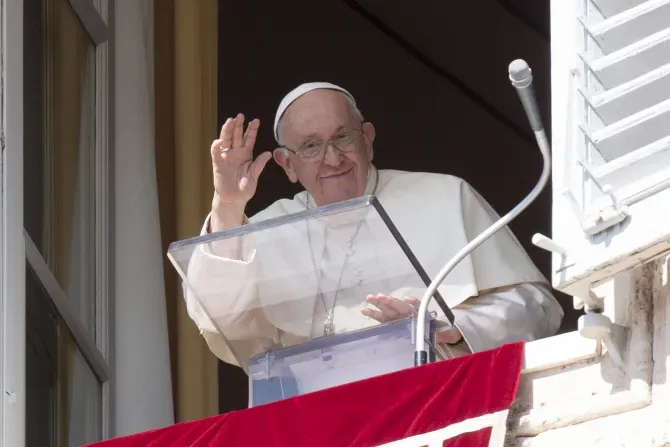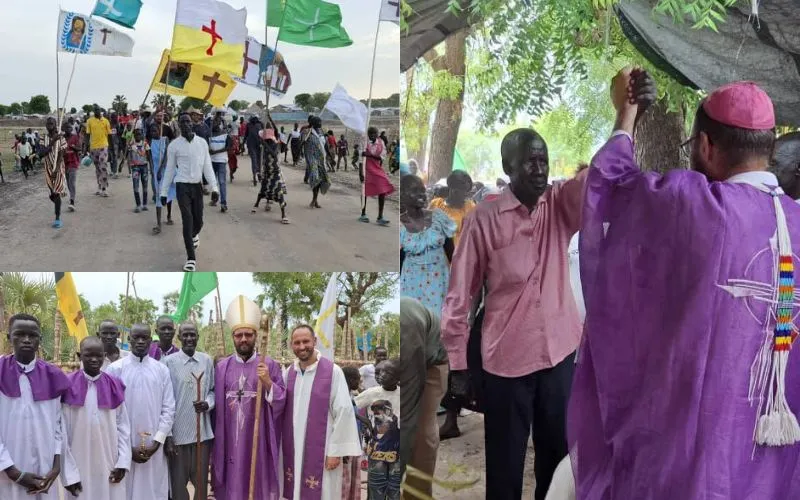“The landowner did everything well, with love,” he said. “He himself toiled to plant the vineyard; he surrounded it with a fence to protect it; dug a wine press, and built a watchtower. Then he entrusted his vineyard to some tenants, leasing his prized possession to them, thus treating them on an equal plane, so that his vineyard might be well cultivated and might bear fruit.”
Under these circumstances, there should have been a good outcome, with everyone fairly sharing the fruits of the harvest — but instead, “ungrateful and greedy thoughts insinuated themselves into the minds of the tenants,” he said.
Ungratefulness and greediness are always at the root of conflicts, he underlined, adding that the same process can also happen in our hearts.
“When someone forgets this gratitude to God, he ends up no longer facing his own situation and his own limits with the joy of feeling loved and saved, but with the sad illusion of needing neither love nor salvation,” the pope said.
He noted that when we no longer let ourselves be loved, we become prisoners to greed and the desire to have more than others or to be more important than others.
This process, he warned, can even lead to violence, driven by resentment fueled by “many dissatisfactions and recriminations, so many misunderstandings and so many feelings of envy.”
“Yes, dear brothers and sisters, ungratefulness generates violence, it takes peace away, and makes us feel and yell when we speak, without peace, while a simple ‘thank you’ can bring back peace,” Francis said.
 A pilgrim in St. Peter's Square for Pope Francis' weekly Angelus address on Oct. 8, 2023, holds a sign with the word "pace," Italian for "peace." Credit: Vatican Media
A pilgrim in St. Peter's Square for Pope Francis' weekly Angelus address on Oct. 8, 2023, holds a sign with the word "pace," Italian for "peace." Credit: Vatican Media
The pope proposed several questions for self-reflection on the topic: “Am I aware that life and the faith are gifts I have received? Am I aware that I myself am a gift? Do I believe that everything comes from the grace of the Lord? Do I understand that, without merit, I am the beneficiary of these things, that I am loved and saved gratuitously? And above all, in response to grace, do I know how to say ‘thank you’?”
Recalling advice he has given to families in the past, Pope Francis again emphasized the importance of saying “thank you,” “please,” and “I’m sorry,” in one’s relationships.
 A large crowd gathered in St. Peter's Square for Pope Francis' Sunday message and Angelus on Oct. 8, 2023. Credit: Vatican Media
A large crowd gathered in St. Peter's Square for Pope Francis' Sunday message and Angelus on Oct. 8, 2023. Credit: Vatican Media




 A pilgrim in St. Peter's Square for Pope Francis' weekly Angelus address on Oct. 8, 2023, holds a sign with the word "pace," Italian for "peace." Credit: Vatican Media
A pilgrim in St. Peter's Square for Pope Francis' weekly Angelus address on Oct. 8, 2023, holds a sign with the word "pace," Italian for "peace." Credit: Vatican Media


